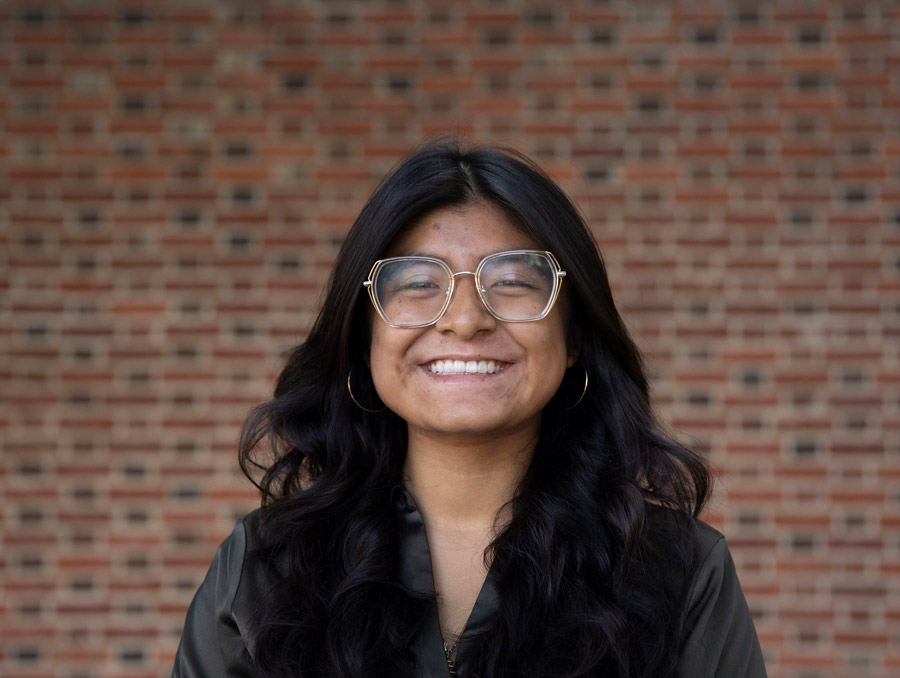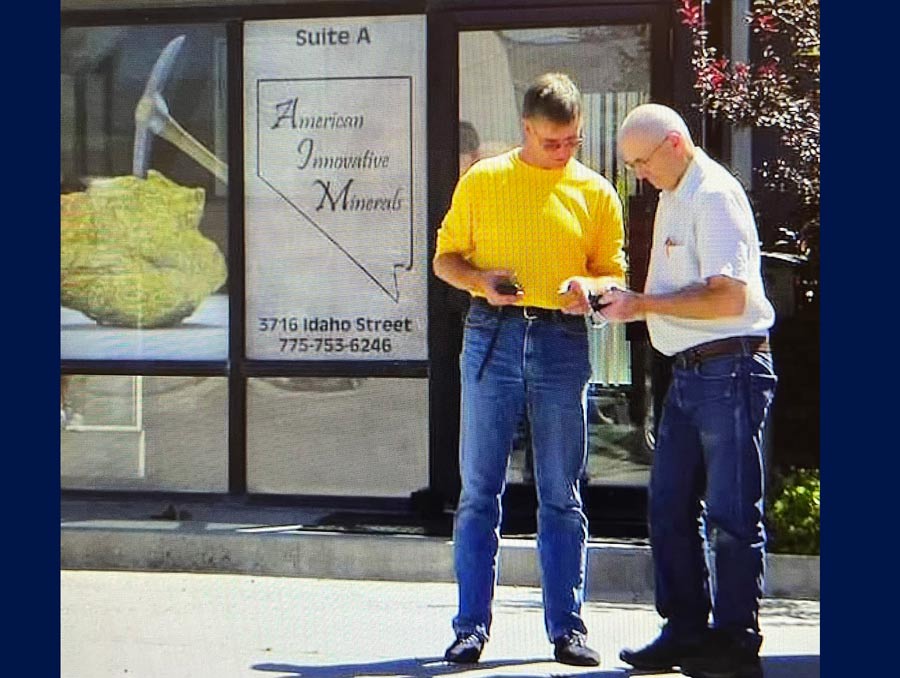Yajahira Dircio, a junior, is part of the Maximizing Access to Research Careers (MARC) Nevada Program. MARC Nevada aims to increase diversity in the fields of biomedical sciences by supporting students in applying to and transitioning into research-focused higher degree programs, such as a Ph.D., M.D. or M.D.-Ph.D.
Yajahira Dircio is an undergraduate majoring in microbiology and immunology and has two minors in theater and philosophy.
“I really like the faculty,” Dircio said of the microbiology and immunology department. "Everybody knows so much.”
While contemplating where she wanted to go for college, Dircio, who grew up in Las Vegas, knew she wanted to gain new experiences and to partake in a strong science program. That’s how she decided to attend the University of Nevada, Reno.
“I knew that there were a lot of opportunities here,” Dircio said.
Dircio originally thought she wanted to pursue medical school. The classes she took and people she spoke with, particularly Jason Ludden, the director of the Office for Undergraduate Fellowships, helped her decide to pursue a Ph.D.
Dircio joined David Aucoin’s research lab the summer after her freshman year, after looking for research opportunities in the department. The Aucoin lab works with bacteria, viruses and fungi, which provided Dircio with the opportunity to learn about a wide range of pathogens.
In the lab, Dircio works with a “virus-like particle” which serves as an analog for the Ebola virus. The virus-like particle has the proteins that cause an immune response but doesn’t have the live virus. This allows the lab to operate more safely and cheaply than if they were to use the live Ebola virus. Dircio is working on developing a rapid test prototype for Ebola diagnosis.
“The sooner you get treatment, the better the patient outcome is,” Dircio said.
The team injects mice with the virus-like particle and takes blood samples from the mice over the following weeks. They also take cell samples from the mice’s spleens, where many of their immunity cells are produced. Those cells create antibodies that react to the virus-like particles. After they isolate the antibodies in the mouse cells, the lab group will be able to design a diagnostic test that can be used to test whether the body is mounting an immune response to a specific disease, in this case, Ebola.
The diagnostic test would be similar to a COVID-19 rapid test, and gold nanoparticles react with the antibodies to produce a purple color. Dircio mentioned that it’s important to be considerate of the materials used in the test. If the environment is too acidic, the proteins would break down and the test wouldn’t accurately indicate whether the antibodies are present or not. Additionally, the gold nanoparticles are expensive, so the goal is to optimize the use of gold and other materials for the tests.
Some of the things Dircio has learned include different tests and techniques like Western Blots and ELISA assays, which detect proteins, and culturing cells.
“I'm really grateful that I get to learn more about immunology through this lab,” Dircio said. “I like that we’re a big group,” she added, saying that she likes being able to learn from different people and to talk with her lab mates.
Dircio’s time in the lab is currently spent trying to isolate the antibodies from cells. In the long term, Dircio hopes to continue to study infectious diseases and to incorporate travel into her work.
“If I’m conducting infectious disease research, I want to see the people in the communities that are interacting and living day-to-day with the infectious disease. I think that’s a really important perspective to have, especially when you’re trying to develop new technologies that would help them.”
Since participating in undergraduate research, Dircio said she’s learned to “just go for it.”
Dircio is also interested in bioethics and the philosophy of science, which is why she decided to minor in philosophy. She worked as a teaching assistant for the department, where she said she was able to hone her writing skills.
“The [philosophy] department is super cool, there’s a lot of support there,” Dircio said. “I think having support outside of my main department is really nice.”
As part of her theater coursework, Dircio stage managed a play in her freshman year, and she took a costume making practicum.
MARC Nevada offers a stipend on top of travel and tuition support for students. For Dircio, the stipend makes it possible to pay for housing and school without having to work a second job.
To balance all her work between the lab and school, Dircio works on homework and studying while experiments are running in the lab, and cuts lab work off at 5 p.m. After that, she works on homework and studies with friends at the library. Dircio doesn’t do any lab work or homework on Saturday to maintain work-life balance.
“I treat lab work and classwork as a 9 to 5,” Dircio said.
Dircio also stays busy on campus outside of her coursework and research. She is the vice president of the Honors Student Council and served as the director of public relations for the council last year. She also previously worked as a student ambassador on campus.
In her free time, Dircio likes to watch shows and play tennis.
Dircio thanks her mentors in the Aucoin lab, Jason Ludden, fellow MARC Scholar Nandini Naidu, and her friends and family for their support.
















